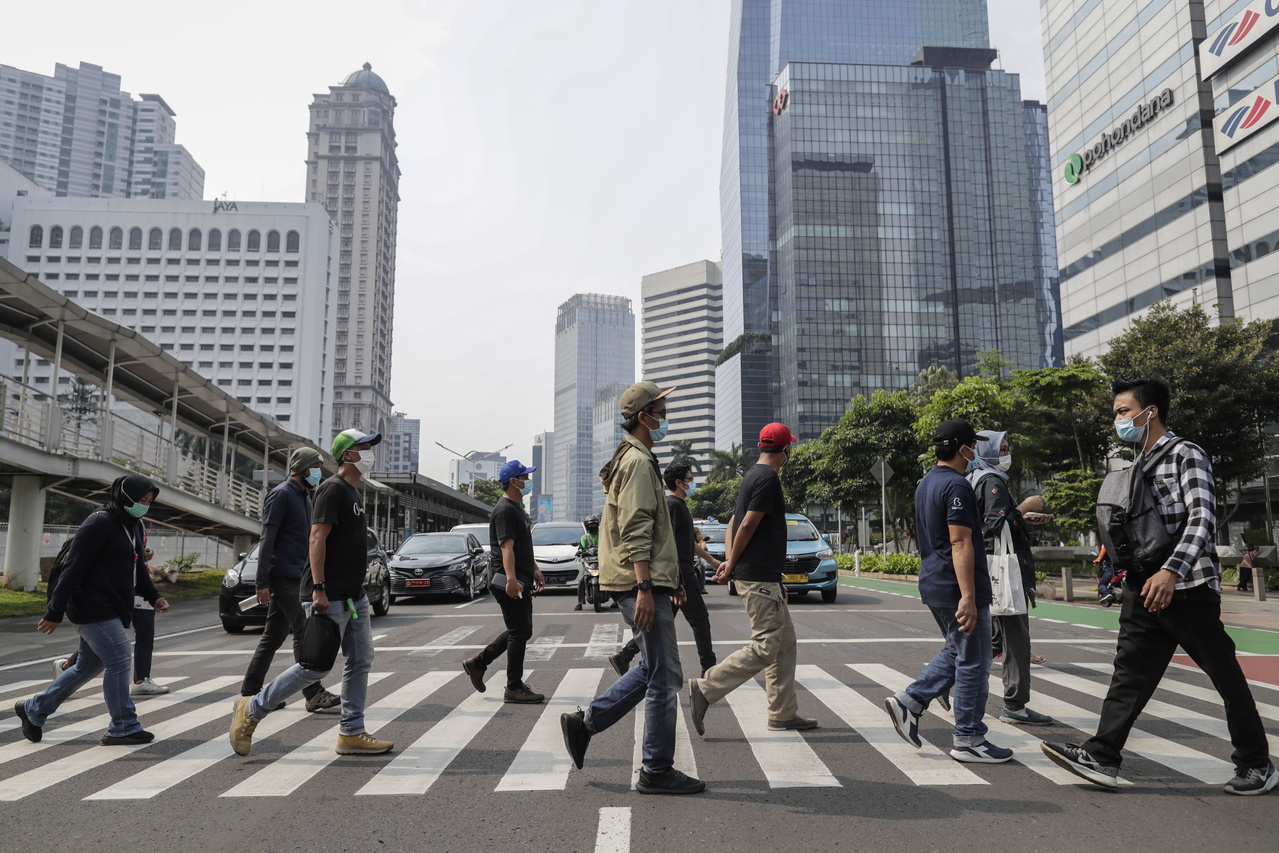Indonesia seeks higher tax for the rich to boost revenues amid Covid-19 pandemic
Sign up now: Get ST's newsletters delivered to your inbox

The government is proposing a 35 per cent personal income tax for individuals with earnings of over $465,500 a year.
PHOTO: EPA-EFE
Follow topic:
JAKARTA - Indonesia is planning to tax the rich more to boost state revenue to help it pull through a health crisis and an economic recession caused by the Covid-19 pandemic.
The government is proposing a 35 per cent personal income tax for high-net-worth individuals with earnings of over five billion rupiah (S$466,550) a year.
South-east Asia's largest economy currently has four tax brackets, ranging from 5 per cent to 30 per cent, for those with annual income of less than 50 million rupiah to above 500 million rupiah.
Tax office spokesman Neilmadrin Noor said that when approved by Parliament, the tax reform would help "strengthen the state budget", while also enhancing taxpayers' compliance. He added that the new tax rate would affect rich Indonesians, including those living overseas who have Indonesian tax identification numbers.
The government will devise a supervision strategy and set up an administration to mitigate tax avoidance, he told The Straits Times.
The new tax rate is among a few measures outlined in a taxation Bill as part of a major overhaul of the tax system. Others include a carbon tax and a rise in value-added tax rates.
Indonesia has seen an estimated budget deficit of 6 per cent of the gross domestic product (GDP) last year, due to massive spending on cash aid, social security and economic recovery programmes to cope with the Covid-19 pandemic that has killed over 53,000 and infected 1.95 million of its population.
The government must gradually narrow the gap to at most 3 per cent by 2023.
Mr Neilmadrin said that there was still no estimate on how much money the government could collect with the proposed tax.
Finance Minister Sri Mulyani Indrawati said in a meeting with the House of Representatives late last month that the income group targeted by the higher tax rate would cover "a very small number of people".
The World Bank's World Development Indicators showed that as at 2019, Indonesia's wealthiest 20 per cent accounted for more than 45 per cent of the income share, up from 38 per cent two decades ago.
Around 1 per cent of the population owned between US$100,000 (S$133,870) and US$1 million as at the same year, while 82 per cent had less than US$10,000, according to Credit Suisse's Global Wealth Report 2019.
A recent report from global property consultant Knight Frank revealed that as at 2020, there were over 21,000 high-net-worth individuals with wealth of over US$1 million and nearly 700 ultra-high-net-worth individuals with wealth of more than US$30 million in Indonesia, which has a population of 270 million.
Centre for Indonesia Taxation Analysis (CITA) tax researcher Fajry Akbar described the introduction of the new income bracket and the higher tax rate for Indonesia's richest as "timely", saying the move would also make the tax regime more progressive.
He added that, however, many of Indonesia's rich depended largely on passive income charged with final income tax.
"If the government wants an optimal result, it will also need to amend the final income tax rates on various financial instruments," he said.
Mr Ah Maftuchan, executive director of welfare policies advocacy group The Prakarsa, said that the current four personal income tax tiers should be expanded to seven instead of just five, in order to create a more just tax system.
These would include a 40 per cent tax for ultra-high-net-worth individuals with earnings above 50 billion rupiah.
"On the other hand, we must also reform our wealth tax system, which has great potential," said the co-coordinator of Tax and Fiscal Justice Asia network, citing inheritance tax as an example.

